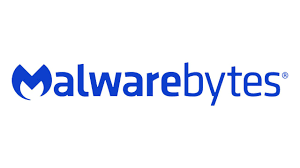The gig economy has transformed the way we work, offering flexibility and diverse opportunities. But with this freedom comes a unique challenge: providing and receiving effective feedback. Unlike traditional work environments with formal performance reviews, gig platforms often rely on star ratings and brief comments, leaving both clients and freelancers yearning for more meaningful feedback. So, how can we navigate this feedback landscape and unlock its full potential for growth and success?
Why Feedback Matters:
For Freelancers: Constructive feedback helps improve skills, identify strengths and weaknesses, and stand out from the competition.
For Clients: Effective feedback ensures project quality, aligns freelancers with expectations, and fosters long-term collaborations.
For the Platform: Quality feedback promotes trust and transparency within the platform, attracting talented freelancers and satisfied clients.
Beyond the Numbers:
Star ratings alone offer limited insights. Here’s how to elevate your feedback game:
Specificity is Key: Avoid vague comments like “great job” or “disappointed.” Point out specific aspects of the work that excelled or fell short.
Actionable Advice: Don’t just identify issues; offer concrete suggestions for improvement. This empowers freelancers to address concerns and deliver better results in the future.
Focus on Strengths: While highlighting areas for improvement is crucial, acknowledging strengths builds confidence and motivates continued excellence.
Contextualize Feedback: Consider factors like project scope, timeline, and communication when evaluating performance.
Respectful Tone: Remember, feedback is a learning tool, not a personal attack. Maintain a respectful and professional tone throughout.
Giving and Receiving Gracefully:
Freelancers: Be open to feedback, even if it’s critical. View it as an opportunity to learn and grow. Ask clarifying questions and express your commitment to improvement.
Clients: Be specific and clear in your expectations upfront. Offer timely feedback throughout the project, allowing for adjustments and course correction.
Remember: Communication is key. If you disagree with feedback, engage in respectful dialogue to find common ground and understanding.
Taking it a Step Further:
Go Beyond the Platform: Seek additional feedback beyond platform systems. Utilize peer review networks, client testimonials, or personal portfolios to gather broader perspectives.
Invest in Self-Evaluation: Regularly reflect on your performance, identify areas for personal growth, and actively seek learning opportunities.
Advocate for Change: Encourage platforms to develop more robust feedback systems that prioritize detailed, actionable, and respectful communication.
Remember, feedback is a gift, not a judgment. By mastering the art of giving and receiving effective feedback, we can create a more collaborative and mutually beneficial environment in the gig economy. This will empower freelancers to thrive, ensure client satisfaction, and ultimately contribute to a healthier, more successful platform ecosystem for all.








Leave a Reply